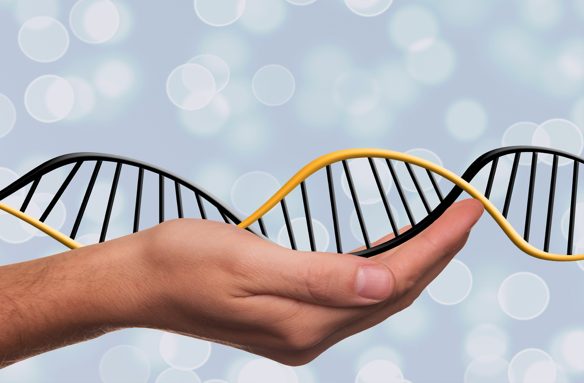
Research suggests as much as half of a person’s risk for developing addiction depends on genetics (1).
If nearly 50 percent of addiction risk boils down to biology, does this mean addiction is hereditary and unpreventable? Not entirely.
Let’s explore “addiction genes,” why substance use is more than your DNA, and what you can do to prevent it.
Are there Addiction Genes?
When scientists refer to “addiction genes,” they’re often referring to inherited levels of dopamine— “feel good” hormones made in your brain. Dopamine acts as a reward center and is released during pleasurable experiences such as exercise, meditation, massage, or a good night’s sleep.
If these levels are off balance from birth, it could impact addiction risk (2). High levels of dopamine, for example, can cause impulsive behavior and lean towards a higher risk for substance use disorder.
However, it doesn’t mean addiction is your destiny just because these genes exist.
Here’s why:
“Nurture” Matters Too
You may have heard the term “nature vs. nurture”. “Nature” refers to a person’s genetic make-up, while “Nurture” refers to the environment in which a person is raised.
While a genetic risk for addiction falls into the “nature” category, many variables that fall under “nurture” can be preventative in your risk for a substance use disorder. Even if addiction seems to run in your family, preventative measures include (3):
- Delayed (or no) use of alcohol, tobacco, or other substances
- Early education on substance abuse
- Avoiding peer pressure
- Seeking help for mental illness
- Learning healthy stress management tools
- Positive social connections and support
Just because your “nature” predisposes you to addiction, your “nurture” can do a lot to prevent it from happening.
Relationships Can Increase or Decrease Addiction Risk
Some studies suggest an animal’s drug use is influenced by its cage mate, providing extra risk or protection from addiction (1). In the human world, that means certain individuals can increase your chances of not only being exposed to substances, but also developing a substance use disorder. Further, drug exposure has been shown to alter gene expression and function, increasing genetic predisposition even further.
Fortunately, the opposite is true. This means that having positive social influences —especially early on— drastically lowers addiction risk. Parents, friends, teachers, counselors, or coaches are all examples of positive role models who can help lower your risk for exposure and development of substance abuse disorders.
The Bottom Line? You’re More Than Your Genetics When it Comes to Addiction
Genetics do play a role in whether or not you’re likely to develop addiction. However, just because DNA predisposes you to it doesn’t mean it’s your fate.
If you have family members who suffer from addiction, you can take steps to lower your risk in other ways. Here’s how:
- Talk to your doctor about your family history of addiction if ever offered opioids.
- Delay or avoid opioids altogether and seek alternative pain management tools for injuries, medical procedures, etc.
- Arm yourself with knowledge on addiction, opioids, and prevention.
- Surround yourself with positive role models and friends who will support you in a sober, drug-free life.
Learn more about GameChanger.
Created in 2018, GameChanger is a student-powered movement with focus on substance misuse prevention among youths. We connect students, educators, and communities with education, training, coaching, and support services to prevent opioid and other drug use before it starts.
Resources
- Genetics: The Blueprint of Health and Disease. National Institute on Drug Abuse. August 2019. Accessed from: https://nida.nih.gov/publications/drugfacts/genetics-epigenetics-addiction
- Is Addiction Hereditary? Cleveland Clinic. 28 June 2022. Accessed from: https://health.clevelandclinic.org/is-addiction-genetic/amp/
- Tips for Preventing Substance Abuse. Prairie View A&M University. Accessed from: https://www.pvamu.edu/sa/drug-and-alcohol-abuse-prevention-program-daapp/tips-for-preventing-substance-abuse/